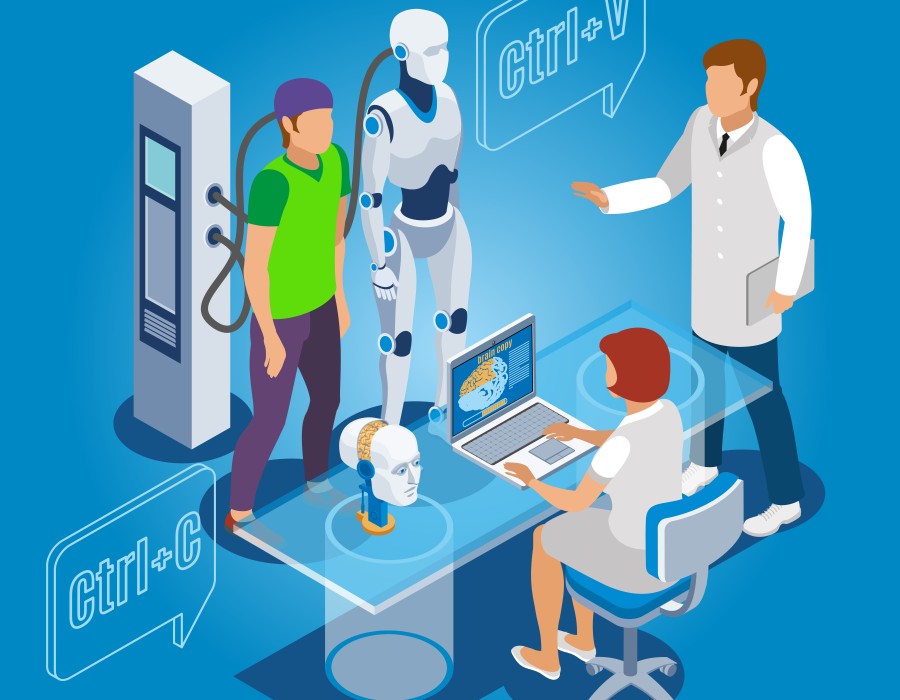Artificial Intelligence (AI) is transforming healthcare — from diagnosing diseases faster to predicting patient outcomes more accurately. But as AI systems grow more powerful, so do the ethical questions surround their use. Can we trust these tools to make fair, safe, and transparent decisions? Are they truly improving care for everyone — or just some?
Enter Responsible AI in healthcare — a framework that ensures AI is used not only effectively but also ethically, transparently, and safely. In this blog, we’ll explore what Responsible AI really means, why it matters so much in healthcare, and how organizations can adopt it in practice.
What Is Responsible AI?
Responsible AI refers to the design, development, and deployment of artificial intelligence systems that are:
- Ethically aligned
- Fair and unbiased
- Transparent and explainable
- Privacy-preserving
- Safe and accountable
In healthcare, where decisions can literally mean life or death, the stakes are even higher. AI must support — not replace — clinical judgment, and it must do so without introducing harm or inequality.
Why Responsible AI Matters in Healthcare
Let’s break down the real-world impact of Responsible AI across key dimensions:
1. Bias and Fairness
Healthcare data often reflects existing societal inequalities. If not handled carefully, AI can learn and even amplify these biases — leading to unequal care.
For example:
- An AI model trained mostly on data from white male patients may perform poorly on women or people of color.
- A scheduling algorithm might deprioritize appointments in low-income areas.
Responsible AI ensures these risks are identified and mitigated through diverse training data, fairness audits, and inclusive design practices.
2. Transparency and Explainability
Doctors and patients need to understand how an AI model reached a certain conclusion. Black-box algorithms can be dangerous when they influence clinical decisions.
Responsible AI emphasizes explainable models that can justify predictions. For example:
- Why did the AI flag a certain patient as high-risk for sepsis?
- What features contributed most to the diagnosis?
This transparency builds trust and supports shared decision-making between patients and providers.
3. Privacy and Consent
AI systems often rely on vast amounts of personal health data. Responsible AI must ensure data is collected, stored, and used in compliance with privacy laws like HIPAA and GDPR.
In addition, patients should have agency:
- What data are they sharing?
- Can they opt out of AI-driven decisions?
Building AI tools with privacy-preserving technologies (like federated learning or differential privacy) is a core tenet of responsibility.
4. Safety and Accountability
If an AI system makes a wrong diagnosis or misses a warning sign, who is accountable — the hospital, the developer, or the AI itself?
Responsible AI practices include:
- Rigorous validation in real-world clinical settings
- Continuous monitoring for drift or errors
- Clearly defined human oversight protocols
The goal: AI should support — not replace — human clinicians and always allow for override or second opinions.
5. Regulatory and Ethical Compliance
Healthcare AI must comply not only with legal standards but also with ethical guidelines, such as:
- FDA and EU MDR approvals for medical devices powered by AI
- Guidelines from the World Health Organization (WHO) on ethical AI use
- Institutional review boards (IRBs) when using AI in clinical trials
Responsible AI ensures systems are designed with compliance in mind from the start, not added later as a patch.
How Healthcare Organizations Can Adopt Responsible AI
Responsible AI isn’t a one-time step — it’s a mindset and continuous process. Here’s how providers, startups, and healthtech companies can get started:
- Conduct AI risk assessments before deployment
- Use diverse datasets and run bias audits
- Choose interpretable models whenever possible
- Train staff on AI literacy and ethical use
- Create interdisciplinary oversight boards (clinicians, ethicists, engineers)
- Establish feedback loops to learn from errors or complaints
Some companies are even appointing Chief AI Ethics Officers to lead the charge on responsible AI adoption.
Final Thoughts
AI in healthcare holds extraordinary promise — but that promise comes with responsibility. To truly improve patient outcomes, we need more than just powerful algorithms; we need AI that is fair, transparent, accountable, and aligned with the core values of medicine.





Comments